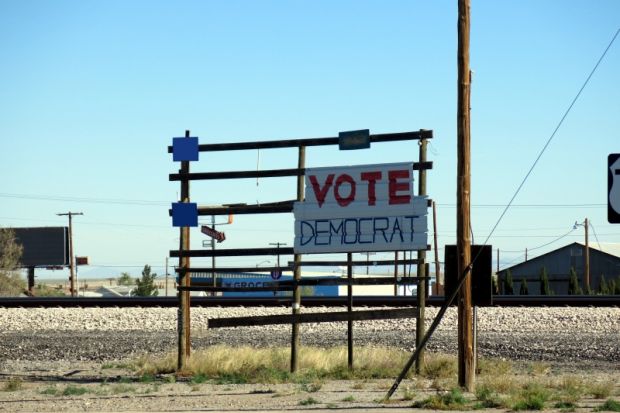US college students overwhelming favour Joe Biden in this year’s presidential election and are determined to cast their votes, a nationwide poll has found.
The online survey of 4,000 students enrolled in four-year degree programmes, commissioned by the Knight Foundation, also found that about half plan to vote by mail and nearly as many fear an unfair election.
With a close contest possible in this year’s presidential race, the ability of Democrats to expand the traditionally low rates of student voting is among their keys to defeating Donald Trump.
A larger survey earlier this year by the Knight Foundation affirmed that challenge, at least among younger voters more generally. It showed that US citizens aged 18 to 24 were less interested in the 2020 election than even chronic non-voters.
The new survey, focusing only on college students, was conducted in early August just as reports began emerging of the US Postal Service cutting operations in line with Mr Trump’s warnings that he would fare poorly among voters using mail.
Half the students surveyed said they planned to vote by mail, with Democratic students twice as likely as Republicans. Most students said the election will not be administered well, and nearly half said it won’t be fair and open.
Students “have major doubts about the legitimacy of the election and are likely to doubt the election’s outcome”, the Knight Foundation said in a summary.
The survey found the four-year college students backed Mr Biden over Mr Trump by a margin of 70 per cent to 18 per cent, with 71 per cent saying they are “absolutely certain” they will vote in the November election.
That kind of turnout among students doesn’t seem likely to materialise, experts said, given the added complications posed by the coronavirus pandemic.
“The survey evidence shows a high level of interest,” said Eitan Hersh, an associate professor of political science at Tufts University who served as an academic adviser on the poll. “But interest is different from follow-through.”
One long-time political analyst, Larry Sabato, a professor of politics at the University of Virginia, said he has seen enough elections to be “optimistic but not delirious”.
“After 50 years around college students,” Professor Sabato said, “I’ve learned to separate good intentions from reality.”
Paul Loeb, founder and president of the Campus Election Engagement Project, which works with colleges to help students navigate the voting process, said he agreed the 71 per cent figure seemed optimistic.
Colleges not only need to counter the typical tendency among students to believe their votes won’t matter, but now also need to provide them with detailed advice for how to follow through on their intentions, Mr Loeb said.
Voting by mail makes the most sense for students, as many campuses are making last-minute adjustments on whether and how to fully open their physical campuses, Mr Loeb said. But, he estimated, perhaps only a third of US colleges have good voting guidance on their web sites.
The move to online may also reduce peer pressure on students to battle the logistical challenges of voting this year, said another academic adviser on the poll, Yanna Krupnikov, an associate professor of political science at Stony Brook University.




